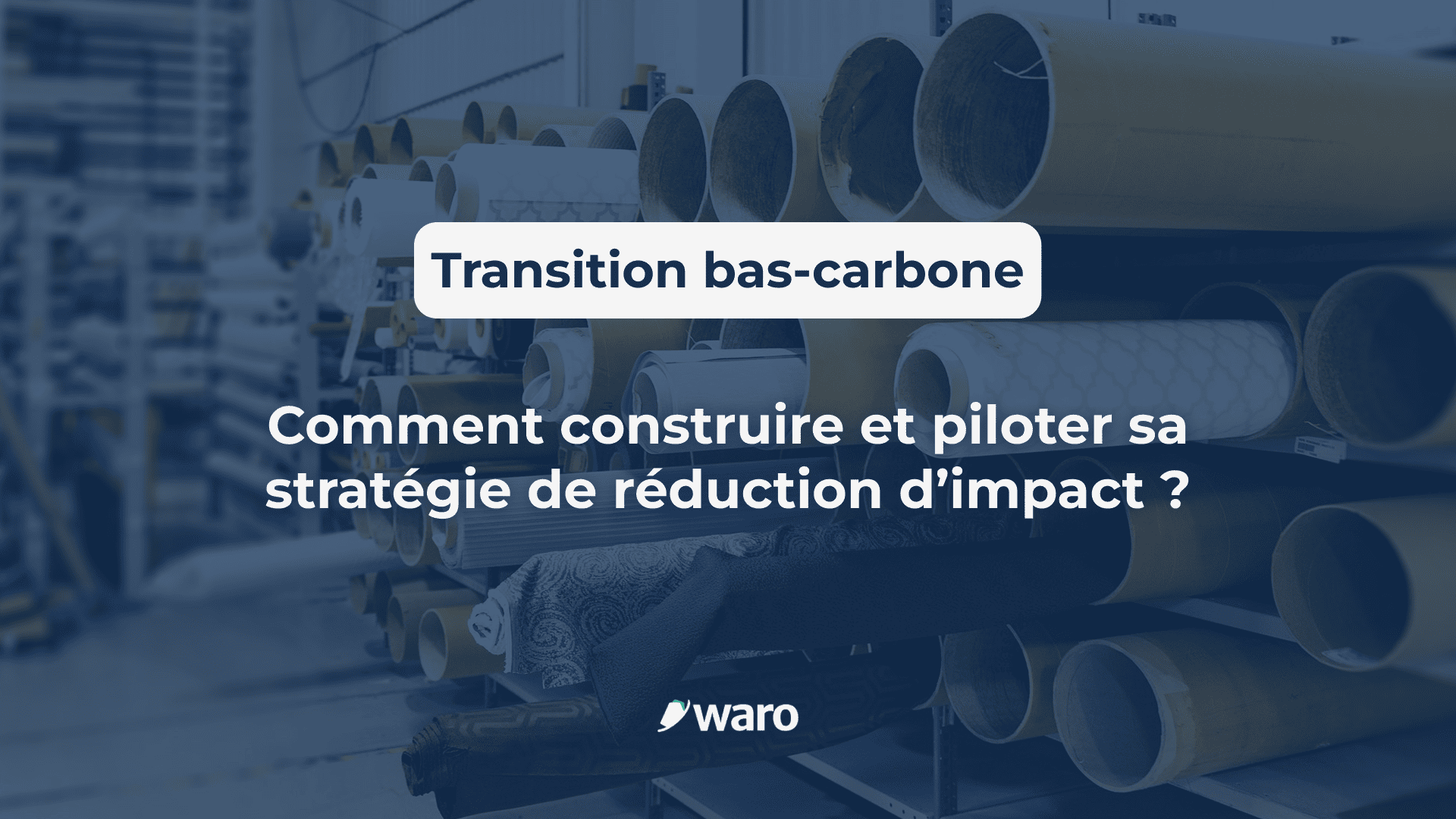Smoon x Waro
Read the interview below with Anne Andrieu - Business Analyst at Smoon - about Smoon's environmental approach, the actions taken and Waro's contribution to their CSR policy.
Read the interview below with Anne Andrieu - Business Analyst at Smoon - about Smoon's environmental approach, the actions taken and Waro's contribution to their CSR policy.
.png)

Smoon is a startup that puts textile innovation at the service of women by offering high-performance, seamless menstrual pants. They offer a comfortable, zero-waste alternative to disposable sanitary pads.
I'm a Business Analyst at Smoon, in charge of measuring our environmental impact. I also assist Marie-Astrid, our textile engineer, in the eco-design of our products.
It takes 300 years for a tampon to degrade, and over 45 billion tampons and menstrual pads are thrown away every year. Reducing the environmental impact of our menstruation is really an important issue for us.
We respond with :
1. products that can be washed and reused for at least 3 years,
2. excellent traceability of our production chain,
3. suppliers who are themselves committed to the environment,
4. and working to constantly improve the eco-design of our menstrual pants.
Before we were able to carry out Life Cycle Analyses - LCAs for short - on Waro, it was difficult for us to measure our environmental impact precisely. However, we've always been keen to minimize it, and we have very good traceability of our value chain.
We chose our suppliers for their own commitment to the environment, their CSR practices and their geographical proximity (France, Italy and Tunisia). We categorically refused air transport in favour of boat or truck, and worked with our suppliers to use recycled materials... although we were unable to quantify the impact of these measures on our environmental balance sheet.
We wanted to know more about the environmental impact of our products, as this is an essential first step to reducing it as much as possible.
LCA seemed to us to be the best solution, as it was very comprehensive and multi-criteria.
Following the AGEC law, we also knew that environmental labelling on textile products would soon become mandatory, and we didn't want to be caught short.
Before working with Waro, we didn't have a CSR platform, and measuring our environmental impact was extremely laborious and time-consuming.
We had tried to measure the environmental impact of certain stages in the life of our products (transport by boat between France and Tunisia, for example) using ADEME's carbon base, but finding the right data was a headache, and the process was too tedious for LCAs to be useful on a day-to-day basis - for eco-designing our products in particular.
We chose Waro to carry out our LCAs for 3 main reasons: the speed with which we could obtain results, our autonomy on the platform, and its specialization in LCAs of textile products.
1. With Waro, there's no need to wait months for the first results on the environmental impact of our products. As environmental labelling of textile products is set to become mandatory in the near future, we didn't want to waste any time.
2. We're soon autonomous when it comes to carrying out our LCAs on Waro (although Adrien is always on hand to answer any questions!). This allows us to use it in the eco-design of our products, without wasting time or incurring new costs.
3. Unlike other more general CSR platforms, Waro is truly specialized in textile LCAs. Everything on the platform is therefore perfectly adapted to our use, making it even quicker and easier to use.
I use Waro to measure the impact of our entire range of menstrual pants. This has enabled us to confirm that our products are much more environmentally friendly than disposable pads or tampons, and to communicate this point to our users on our e-commerce site.
This has also enabled us to justify and quantify precisely our impact in certain areas, such as BCorp certification.
I also use Waro as a real eco-design tool, because LCAs enable us both to identify the stages in the life of our products that are the most polluting (and therefore the pain points to be addressed as a priority) and to distinguish between several textiles or suppliers by precisely measuring and comparing their impacts.
More anecdotally, using Waro has enabled me to add the kgs of CO2 eq and grams of phosphate avoided each week to the monitoring of our extra-financial KPIs, and to further raise awareness of the issue of environmental impact internally.
Impact!
Because these LCAs carried out on Waro not only measure our environmental impact, they also have a real impact on Smoon and help us to take our ecological approach even further.


.png)